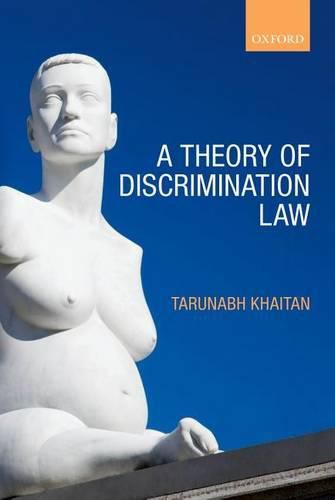Readings Newsletter
Become a Readings Member to make your shopping experience even easier.
Sign in or sign up for free!
You’re not far away from qualifying for FREE standard shipping within Australia
You’ve qualified for FREE standard shipping within Australia
The cart is loading…






Marrying legal doctrine from five pioneering and conversant jurisdictions with contemporary political philosophy, this book provides a general theory of discrimination law. Part I gives a theoretically rigorous account of the identity and scope of discrimination law: what makes a legal norm a norm of discrimination law? What is the architecture of discrimination law? Unlike the approach popular with most textbooks, the discussion eschews list-based discussions of protected grounds, instead organising the doctrine in a clear thematic structure.This definitional preamble sets the agenda for the next two parts. Part II draws upon the identity and structure of discrimination law to consider what the point of this area of law is. Attention to legal doctrine rules out many answers that ideologically-entrenched writers have offered to this question. The real point of discrimination law, this Part argues, is to remove abiding, pervasive, and substantial relative group disadvantage. This objective is best defended on liberal rather than egalitarian grounds.Having considered its overall purpose, Part III gives a theoretical account of the duties imposed by discrimination law. A common definition of the antidiscrimination duty accommodates tools as diverse as direct and indirect discrimination, harassment, and reasonable accommodation. These different tools are shown to share a common normative concern and a single analytical structure. Uniquely in the literature, this Part also defends the imposition of these duties only to certain duty-bearers in specified contexts. Finally, the conditions under which affirmative action is justified are explained.
$9.00 standard shipping within Australia
FREE standard shipping within Australia for orders over $100.00
Express & International shipping calculated at checkout
Marrying legal doctrine from five pioneering and conversant jurisdictions with contemporary political philosophy, this book provides a general theory of discrimination law. Part I gives a theoretically rigorous account of the identity and scope of discrimination law: what makes a legal norm a norm of discrimination law? What is the architecture of discrimination law? Unlike the approach popular with most textbooks, the discussion eschews list-based discussions of protected grounds, instead organising the doctrine in a clear thematic structure.This definitional preamble sets the agenda for the next two parts. Part II draws upon the identity and structure of discrimination law to consider what the point of this area of law is. Attention to legal doctrine rules out many answers that ideologically-entrenched writers have offered to this question. The real point of discrimination law, this Part argues, is to remove abiding, pervasive, and substantial relative group disadvantage. This objective is best defended on liberal rather than egalitarian grounds.Having considered its overall purpose, Part III gives a theoretical account of the duties imposed by discrimination law. A common definition of the antidiscrimination duty accommodates tools as diverse as direct and indirect discrimination, harassment, and reasonable accommodation. These different tools are shown to share a common normative concern and a single analytical structure. Uniquely in the literature, this Part also defends the imposition of these duties only to certain duty-bearers in specified contexts. Finally, the conditions under which affirmative action is justified are explained.